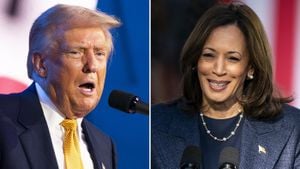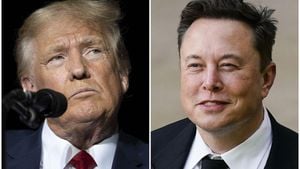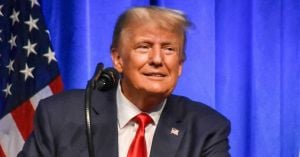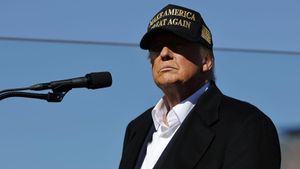Israel's recent military actions against Hezbollah have raised alarm bells, particularly surrounding the delicate balance between military objectives and cultural preservation. An Israeli airstrike on Baalbek, Lebanon, targeted close to UNESCO-listed sites, creating fears for the historic landmarks of the ancient city.
Located in Lebanon's eastern Bekaa Valley, Baalbek is renowned for its massive Roman temples, and its heritage has now been threatened. On November 7, 2024, the airstrike destroyed an Ottoman-era building not far from the famed ruins, marking the closest Israel has come yet to such protected sites. Governor Bachir Khodr emphasized the importance of the destroyed structure, detailing its historical significance and lamenting its destruction. "It’s a very artisanal neighbourhood, typically full of tourists," Khodr explained. Fortunately, no immediate damage to the iconic Roman temple complex was reported, yet assessments are still pending to determine the overall state of the heritage area.
The airstrikes formed part of broader military operations targeting Hezbollah's infrastructure allegedly located within densely populated civilian areas. According to local authorities, the strikes on Baalbek resulted not only in significant cultural loss but also casualties, with reports indicating around 40 deaths from related attacks.
UNESCO made clear its concerns over the safety of the cultural sites and is considering granting enhanced protection status to vulnerable heritage sites across Lebanon. This status would provide these sites "high-level immunity from military attacks," according to the organization. A meeting scheduled for November 18 will convene to discuss placing Lebanese heritage sites under enhanced protection, following appeals from over 100 Lebanese lawmakers urging the international community to prioritize their preservation.
Alongside these developments, the strikes have drawn attention to Israel's strategy behind its military operations. Israel claims it is acting against Hezbollah’s military capabilities and infrastructure, which they allege assist the group’s operations. This includes targeting civilian organizations like the Al-Qard Al-Hassan Association (AQAH), which provides microloans to people across Lebanon. Israel’s objective appeared clear: to erode Hezbollah's support system within the Lebanese civilian population.
Dr. Amal Saad, a prominent expert on Hezbollah, elaborated on this notion. Targeting civilian organizations is perceived as an attempt to dismantle Hezbollah's social base, which plays a key role in supporting the group’s resistance activities. This approach is not new; past conflicts have previously targeted civilian infrastructures associated with resistance groups, creating rifts within communities reliant on such organizations.
Hezbollah, responding to these strikes, has denied claims of utilizing organizations like AQAH for military funding and insists their missions focus on aiding ordinary Lebanese citizens. Despite this, the continuous barrage on such entities raises significant discussions around international humanitarian law, as experts highlight the legal and moral dilemmas inherent to targeting dual-use organizations.
The humanitarian crisis resulting from these actions also cannot be overlooked. The Lebanese Health Ministry reported nearly 3,000 deaths since the conflict reignited, with thousands more displaced amid the rising violence. Civilians living near targeted areas were urged to evacuate, creating panic and anxiety among communities.
Moving to the Israeli front, military personnel express mixed feelings about the government’s direction amid shifting political contexts both domestically and within the U.S. Following what has been described as the breaking of the Israeli-Iranian diplomatic stalemate by the recent invasions, some IDF soldiers are calling for continued action against Hezbollah to achieve enduring peace along the border. This is encapsulated by soldiers like Teddy, who has seen the ravages of conflict firsthand.
"We need to drive them [Hezbollah] back so our people can return," said Noam, another IDF soldier, highlighting the urgency felt among those affected. The Israeli government’s decision-making also affects military strategy, especially with the changing administration within the U.S. under President Donald Trump, prompting speculation on the future of U.S. relations with Israel and its impact on military decisions.
Meanwhile, Lebanon remains enmeshed in suffering, with many families displaced and living precariously. Their lives have been upended as communities reel from the destruction and fear of future attacks. Amidst this turmoil, the broader significance of safeguarding cultural heritage becomes increasingly poignant, intertwining issues of identity, history, and human rights.
Hezbollah's tactical decisions are facing their own scrutiny as they grapple with the state's military advancements. Accusations levelled against Hezbollah suggest its fighters exploit civilian cover, and the tension between military needs and civilian safety presents ethical challenges. Amidst intensified military pressure, the focus gradually shifts back to negotiating peace, raising key questions about the legitimacy of military strategies against civilian-backed organizations.
Given the rapid changes and uncertainty surrounding the conflict, the international community is now pressed to act. Whether through diplomatic resolutions or protective measures for cultural sites, the consequences of the Israeli-Hezbollah conflict echo through civilian instability and cultural destruction. The challenge for Lebanon transcends immediate military objectives; it lies squarely with preserving its identity and heritage amid encroaching violence.



